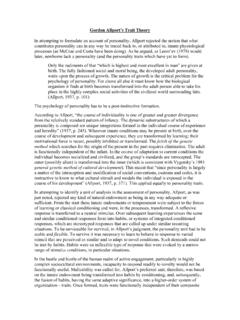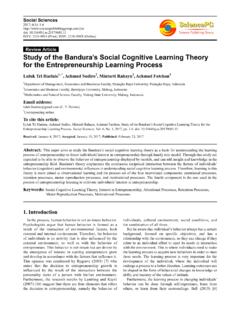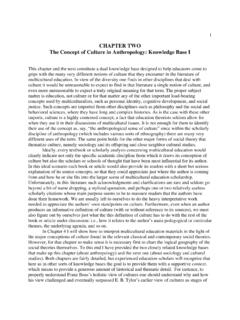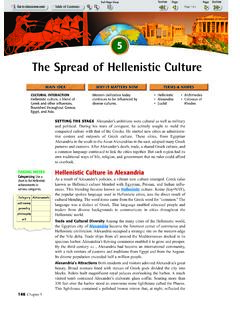Transcription of Theories of Social Change
1 Paper 4 Theories of Social Change Diana Leat January 2005 Theories of Social ChangeTheories of Social ChangeTheories of Social ChangeTheories of Social Change Page 2 ABOUT THE PROJECTABOUT THE PROJECTABOUT THE PROJECTABOUT THE PROJECT The foundation sector grows at a considerable pace and is about to entail significant changes in the three'way relationship of private wealth, public policy and non profit action. To cope with the challenges arising from these transformations the International Network on Strategic Philanthropy (INSP) was established in spring 2001. With the underlying assumption that strategic philanthropy is more effective philanthropy, the network has striven to professionalize foundation management, convene the excellent minds of the sector, clarify the guiding values behind foundation activities, and contribute to capacity building in the field.
2 The 68 members of the INSP are representatives of foundations and support organizations, consultants and researchers from the US, Europe and other countries of the world that operate along the lines of strategic philanthropy. The network now presents a number of high'quality papers on a range of important subjects regarding strategic philanthropy. These include topics such as the role of philanthropy in globalization, new innovative instruments for philanthropy, promoting philanthropy, the role of evaluation in foundations and effective board management. The papers are available for free download at the INSP s Web site at is an initiative of the Bertelsmann Stiftung in collaboration with Atlantic Philanthropies, the Charles Stewart Mott Foundation, the Compagnia di San Paolo, the Ford Foundation, the German Marshall Fund of the United States, and the King Baudouin Foundation.
3 Along with the Bertelsmann Stiftung, three institutions The Philanthropic Initiative, Inc., The Hauser Center for Nonprofit Organizations at Harvard University, and The Center for Civil Society at the University of California Los Angeles help to coordinate the work of approximately 70 network members. The INSP working groups are advised and coordinated by representatives of leading academic and consulting institutions: Prof. Helmut K. Anheier, Director, Center for Civil Society, University of California Joe C. K. Breiteneicher, President, The Philanthropic Initiative Prof. Christine W. Letts, Associate Director, Hauser Center for Nonprofit Organizations, Harvard University For more information, please contact: Dirk Eilinghoff Philanthropy and Foundations Bertelsmann Foundation Carl'Bertelsmann'Strasse 256 33311 G tersloh (0049) (0) 5241 81 81391 THE BERTELSMANN FOUNDATIONABOUT THE BERTELSMANN FOUNDATIONABOUT THE BERTELSMANN FOUNDATIONABOUT THE BERTELSMANN FOUNDATION The Bertelsmann Foundation is Germany s largest foundation established by a private donor.
4 In keeping with the longstanding Social commitment of its founder, Reinhard Mohn, the Bertelsmann Stiftung is dedicated to serving the common good by encouraging Social Change and contributing to society s long'term viability. To achieve this, it maintains an ongoing dialog with all of society s stakeholders. The belief that competition and civic involvement form an essential basis for Social progress is central to the foundation s work. In order to apply its expertise as effectively as possible, the Bertelsmann Stiftung is structured according to subject areas. The foundation's 280 employees focus on Education, Health, Economics and Social Affairs, International Relations, Corporate Culture and Promoting Philanthropy.
5 Theories of Social ChangeTheories of Social ChangeTheories of Social ChangeTheories of Social Change Page 3 CONTENTS CONTENTS CONTENTS CONTENTS INTRODUCTION 4 BROAD Theories OF Change 4 STEPS TOWARD ACHIEVING SUSTAINABLE Change 7 APPROACHES TO Change VIA POLICY INFLUENCE 10 BIBLIOGRAPHY 14 ABOUT THE AUTHOR 15 INSP TITLES 16 Theories of Social ChangeTheories of Social ChangeTheories of Social ChangeTheories of Social Change Page 4 INTRODUCTIONINTRODUCTIONINTRODUCTIONINTR ODUCTION The aim of this paper is to begin to lay out Theories , models and applications of societal, organisational/institutional, individual and group Change .
6 Given that most foundation encouraged Change takes place in or via organisations it was agreed that organisational Change and implementation would be the main focus of the paper. We are also concerned not primarily with Theories of how Change happens naturally but rather with how foundations can engineer or intervene to make Change happen. The goal is to enable foundations to think more clearly about their assumptions and to make better informed choices. The sort of tool we have in mind would identify key questions for foundations, including: What do we want to achieve? What is the nature of the problem we want to address/ Change ?
7 Who or what needs to Change ? In what ways? How could we achieve that Change ? What assets do we have to apply to that? What externally or internally imposed constraints are we operating under? In Section Two, we briefly outline key perspectives on Change at the individual, group, organisational, institutional, societal levels. In Section Three we look at approaches to planned Change , from problem identification through to programme implementation. Section Four considers approaches to Change via policy influence. BBBBROAD Theories OF CHANGEROAD Theories OF CHANGEROAD Theories OF CHANGEROAD Theories OF Change Theories of Societal ChangeTheories of Societal ChangeTheories of Societal ChangeTheories of Societal Change Factors in societal Change may be summarised under three main headings: economic, political and cultural.
8 Marx is perhaps the most famous proponent of the notion that societies/forms of Social organisation are largely determined by economic factors, and in particular the impact of industrial capitalism. Among political influences the state government now plays a very large role in Social life and Change in industrial societies. Cultural influences clearly play an important part in Social Change . For example, secularization and the development of science have had major effects on the way in which we think, attitudes to legitimacy and authority, and have thus also influenced Social structures, systems and values (Giddens and Duneier, 2000). If these are the key factors in societal Change , foundations wanting to effect Change at this level need to focus on changing economic, political or cultural structures and processes.
9 This macro approach to Social Change is adopted by some international foundations aiming to Change economic and political conditions. These fundamental themes of resources, power/politics, and cultural factors reappear, in a sense, in Theories of organizational Change . Theories of Social ChangeTheories of Social ChangeTheories of Social ChangeTheories of Social Change Page 5 Theories of Organisational ChangeTheories of Organisational ChangeTheories of Organisational ChangeTheories of Organisational Change Very broadly, there are four main approaches to organizations and organizational Change : classical/early modernist, modernist, symbolic interpretive and post modern.
10 Classical and early modernist theorists are more concerned with stability than Change . Early modernists see Change as planned Change in which a Change agent introduced Change in a deliberate way. In contrast, for the modernists organisational Change stems from changes in the environment and is outside the organisation s direct control. More recently, population ecology, organizational life cycle and learning organization Theories have seen organizations as not just adapting to external pressures but creating their own internal dynamics. Symbolic Interpretive Theories of organizational Change are essentially dynamic insofar as because the processes of Social construction are seen as both reproducing existing structures and leading to their alteration.








